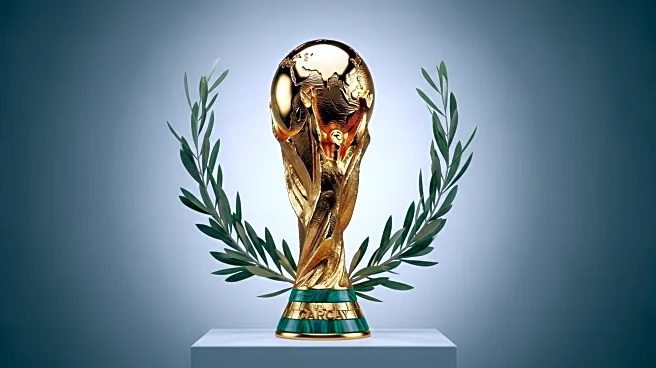What's Happening?
The U.S. government is opposing efforts to ban Israel from the 2026 World Cup as UEFA considers suspending Israeli teams from international play. This comes amid calls for a ban following a UN inquiry accusing Israel of genocide in Gaza. Israel is currently competing in UEFA World Cup qualifiers, and a suspension could prevent its first tournament appearance since 1970. The U.S. State Department has stated its intention to block any attempts to ban Israel, leveraging its influence as a co-host of the 2026 World Cup.
Why It's Important?
The potential ban on Israel highlights the intersection of sports and international politics. The U.S. stance reflects its geopolitical alliances and the influence of sports diplomacy. A ban could have significant implications for Israel's international standing and its participation in global events. The situation also underscores the role of sports organizations in addressing human rights issues and the pressure they face from political entities.
What's Next?
UEFA's decision on the suspension is pending, with a majority of its executive committee reportedly in favor. The U.S. will likely continue diplomatic efforts to prevent the ban, while FIFA faces pressure to take a stance. The outcome will influence Israel's participation in international sports and could set a precedent for how sports bodies handle geopolitical conflicts.
Beyond the Headlines
The debate raises questions about the role of sports in political conflicts and the ethical responsibilities of governing bodies. The situation could lead to broader discussions on the use of sports as a platform for political statements and the impact of such actions on international relations.










